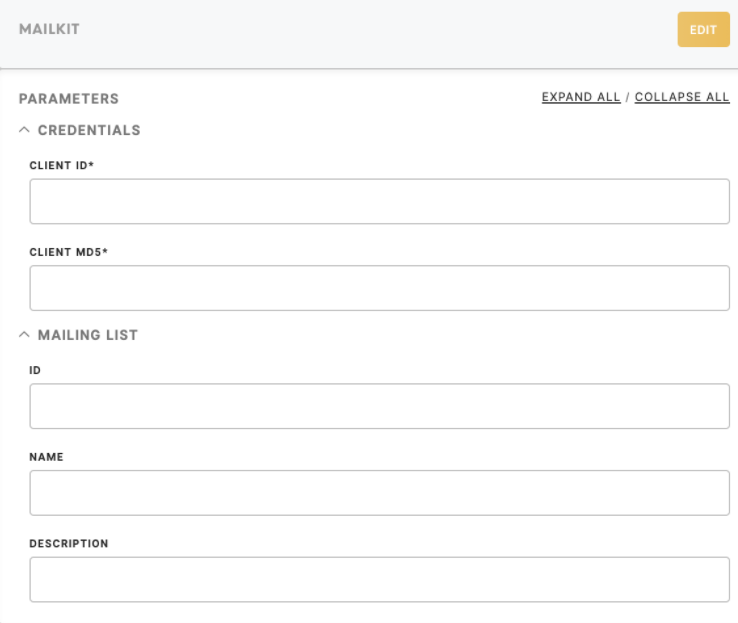Loader Mailkit
Loader Mailkit allows you to load data into Mailkit.
Data In/ Data Out
|
Data In |
List of possible configurable fields (columns in input file
|
||||||||||||||||||||||||||||||||||||||||
|
Data Out |
N/A |
Learn more: about the folder structure here.
Parameters
Credentials
|
Client ID (required) |
Client ID provided by Mailkit |
|
Client MD5 (required) |
Client MD5 (API secret key) provided by Mailkit |
Mailing list
|
ID |
Mailing list ID (either ID or Name is required) |
|
Name |
Mailing list name (either ID or Name is required) |
|
Description |
Mailing list description (optional) |
|
Mailing list ID or Mailing list name (required) |
|
-
- Warning: Consider the following guidelines when preparing your delimited text (CSV) files for loading: 1. Snowflake loader expects ‘,’ character to be used as a delimiter in the input CSV files. 2. Fields that contain the delimiter character (‘,’) must be enclosed in double quotes (‘"’). If the data contains double quotes, then those quotes must be escaped. 3. Carriage returns are commonly introduced on Windows systems in conjunction with a line feed character to mark the end of a line (\r \n). Fields that contain carriage returns should also be enclosed in double quotes. 4. The number of columns in each row should be consistent.

